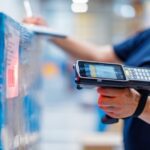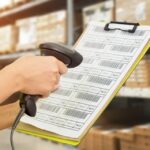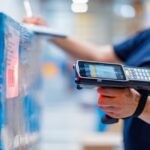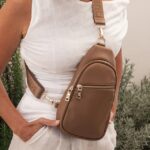Businesses that handle export, import or track production stages rely heavily on barcodes. Barcodes are unique visual codes that carry essential data about a product or asset. As such, they have an invaluable role in reducing errors and allowing smooth workflow. Today, it’s nearly impossible to imagine running a business without them.
You can search for reliable barcode scanners online to find the best model for your business needs. Different scanners are designed for specific barcode types, so choose one that fits your requirements. Boost productivity and efficiency in your workspace and let the readers do the work for you.
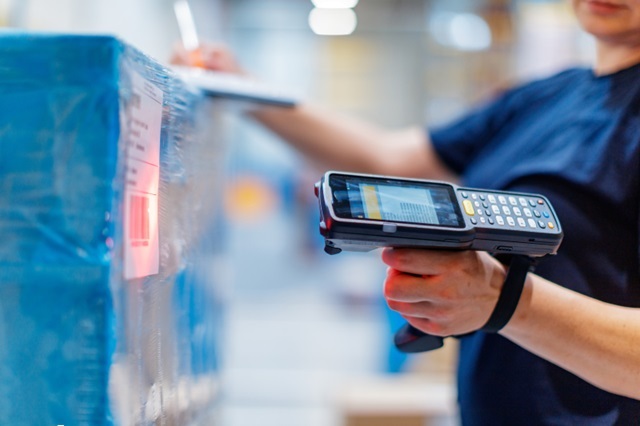
Types of Barcode Scanners
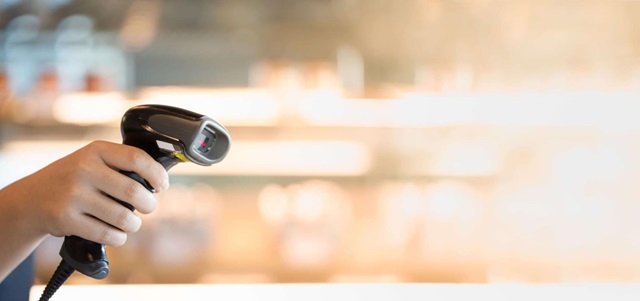
When you search for barcode scanners online, you’ll find that each reader includes specific details about its type and intended use. This gives you a clear picture of what each scanner is designed for, helping you find a scanner that you need.
Cordless Scanners
If your employees need to move around often when scanning barcodes, cordless readers might be the best solution for your business. They are easy and quick to use, allowing you to scan items without the restriction of cables.
Cordless readers typically use wireless technology like Bluetooth or WI-Fi, which means they provide reliable performance within a certain range from the base. These readers are mostly used in warehouses and retail, where you frequently move from one area to another.
Fixed Mount Scanners
Fixed mount scanners are typically installed on production liners, kiosks or conveyor belts, which makes them ideal for high-volume environments where many items pass through the scanner.
This type of barcode reader is widely used in manufacturing, logistics and self-service kiosks, allowing for hands-free, continuous scanning with high speed and precision.
2D Scanners
2D scanners are designed to read 1D (linear) and 2D barcodes, including QR codes, data Matrix and PDF417. The main difference between 1D and 2D scanners is that 2D devices can capture barcodes at any angle, while 1D readers can only read in a single direction.
As a result, 2D scanners are widely used in healthcare, retail and logistics, as well as in industries that rely on QR codes.
Image Scanners
Image barcode scanners use a small camera instead of a laser, which allows them to read barcodes even if they are damaged. The camera captures and decodes an image of the barcode, even when it’s poorly printed or curved.
As a result, these scanners are widely used in the healthcare and automotive industries, where barcodes often appear on uneven surfaces, making them difficult to read. They are also ideal for scanning in low-light areas and can read codes in any direction.
Bluetooth Scanners
Bluetooth scanners can connect to mobile devices, computers and tablets, which eliminates the need for cords. As a result, they are most commonly used in retail, warehousing and field services, where the staff relies heavily on portable readers. Ideal for on-the-go tasks as they easily connect to a wide range of devices.
Laser Scanners
Laser scanners are designed to read only linear 1D codes. They use a laser beam to achieve high accuracy in decoding. They are particularly effective in retail for quick scanning and warehouses to read barcodes from a distance.
However, keep in mind that laser scanners can only read linear barcodes and may not work well for damaged barcodes or 2D codes.
Handheld Scanners
Handheld scanners are the most commonly used type of scanners. They are easy to use, and they come in various configurations including wired, cordless and Bluetooth options.
They can be used across multiple industries such as retail, logistics and healthcare, for scanning items or inventory on the spot. Most of them are ergonomically designed to allow use for extended periods without feeling discomfort.
Socket Barcode Scanners
Small, thin and easy to use, socket readers connect to smartphones or tablets, so you can easily scan items through your mobile devices.
They are highly popular in sales, event management and inventory control due to their lightweight, compact and portable design. They do their job without adding extra bulk, which makes them an ideal scanning option for professionals on the go.
Healthcare and Medical
In healthcare, accuracy is crucial. As a result, the medical field requires scanners that provide quick and accurate readings. Healthcare scanners ensure patient safety by tracking medication administration and medical supplies, and they often include features like 2D scanning and ergonomic designs.
QR Scanners
Commonly used in marketing, inventory and customer management, QR scanners are optimised for reading QR codes. While you’ll often find that 2D scanners include QR scanning, Q scanners are specifically dedicated to reading these types of barcodes. As such, they deliver high accuracy and speed in their performance.
Even if QR scanners are normally used for commercial purposes, they can also be applied in the field of contact tracing. During the COVID-19 pandemic, QR scanning technology has been utilized to track potential cases and prevent further spread of the virus. As businesses reopen and society adjusts to a new normal, QR scanners will continue to play a crucial role in maintaining public health and safety.


